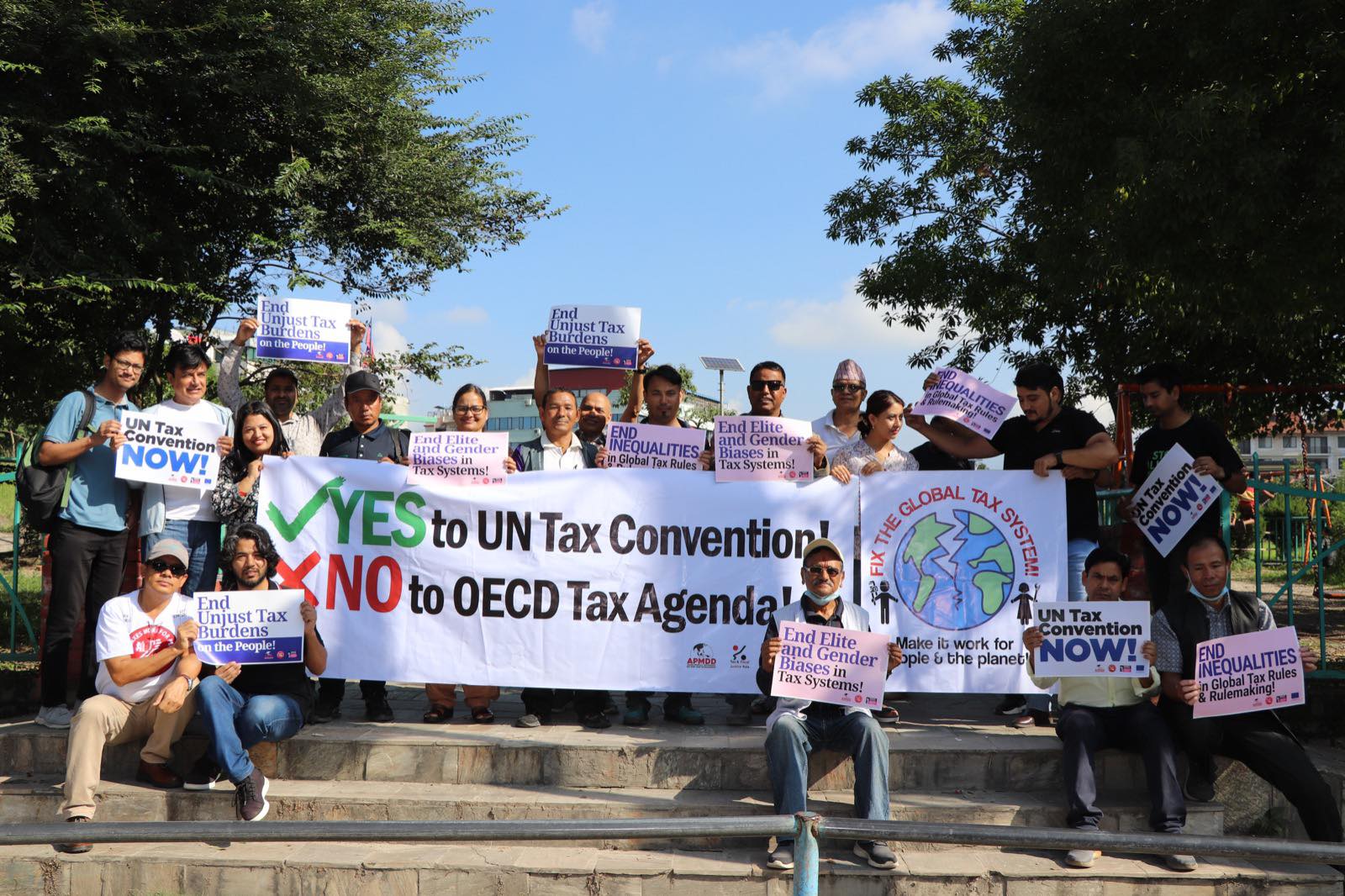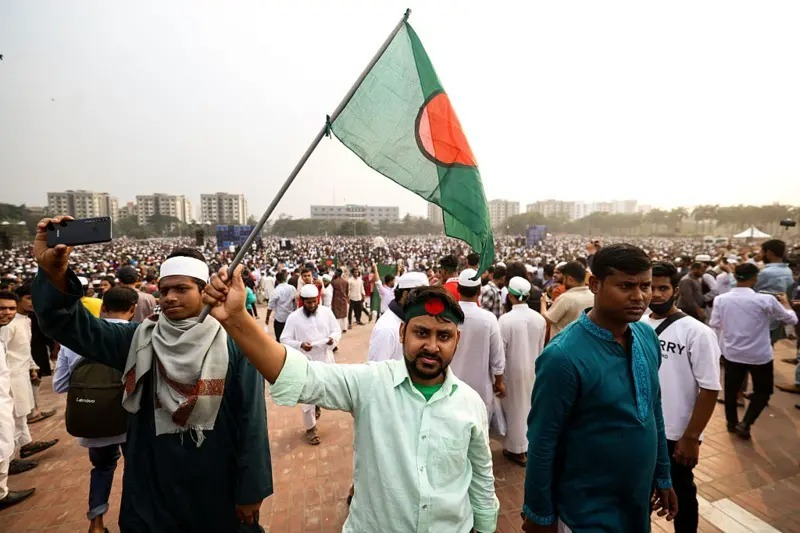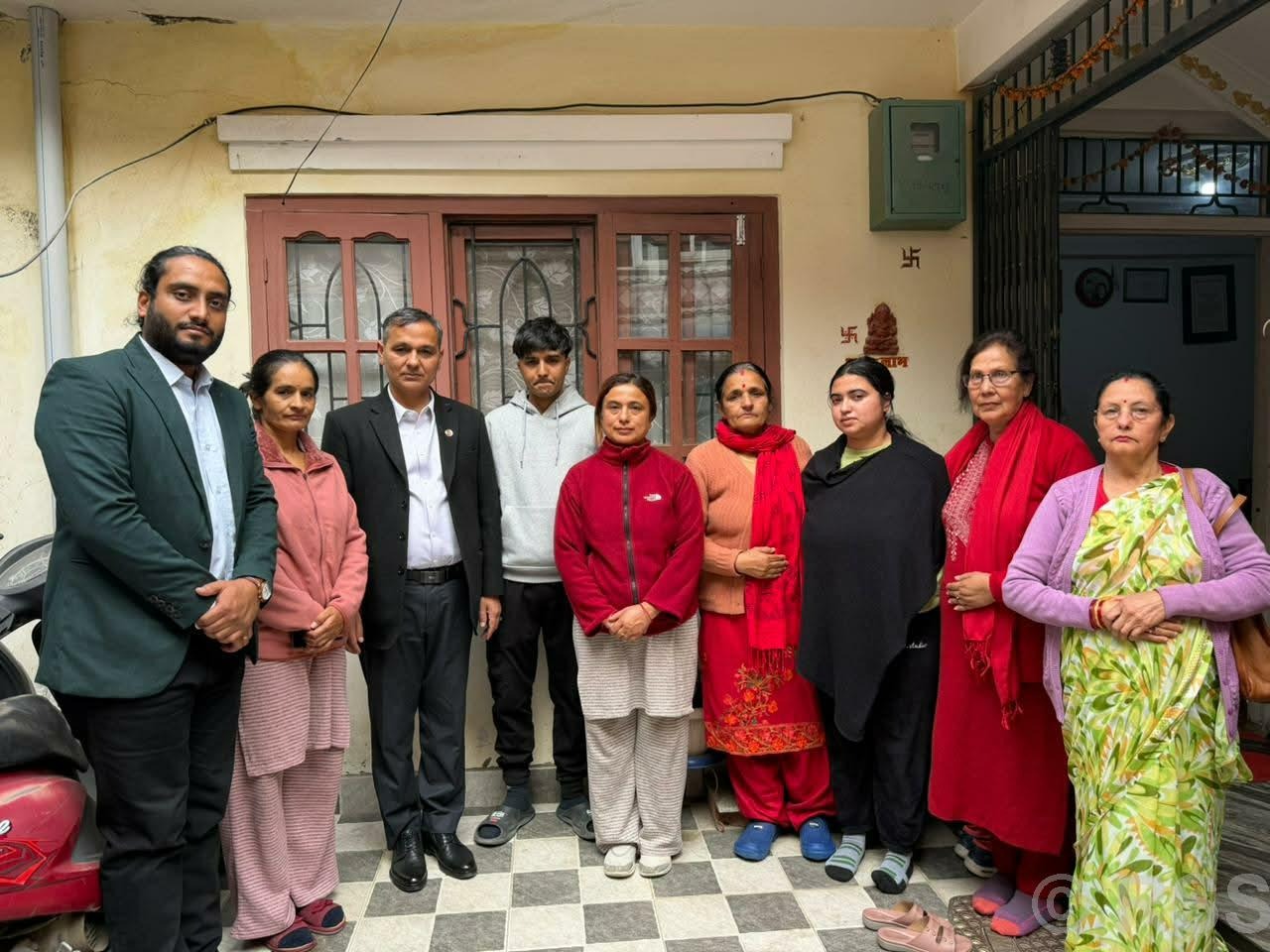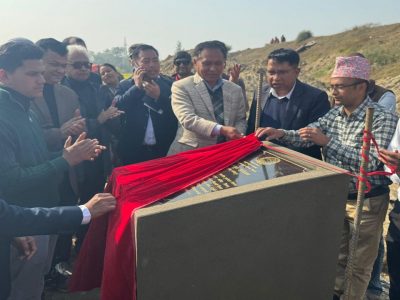Protest in Kathmandu Demands Tax Justice

Kathmandu, Sept 20: In a resounding call for economic justice and fair taxation, concerned citizens gathered in the heart of Kathmandu on 19 September, 2023 to demand tax justice and accountability. Organized by the Tax and Fiscal Justice Alliance (TAFJA) in coordination with the Asian People’s Movement on Debt and Development (APMDD), this protest aims to shed light on the pressing issue of inequality perpetuated by an unjust tax system.
The protest kicked off at Naxal, Kathmandu at 8.30 AM, where participants rallied together, carrying banners, placards, and their determination to demand a fairer tax system. Speakers at the event included prominent community leaders and experts in economics, who will shed light on the current state of taxation in Nepal and the pressing need for reform.
Why Tax Justice Matters
Nepal, like many other nations, grapples with an imbalanced tax system that disproportionately burdens the most vulnerable members of society while allowing the wealthy to evade their fair share of contributions. This protest seeks to draw attention to myriad of issues associated with the need for tax justice. Dr Keshab Khadka, a veteran economist who is familiar with the tax system in Nepal says “Nepal’s economic progress depends on a tax system that promotes inclusivity and bolsters public services. A fair tax system is not just about collecting revenue; it’s about reducing inequality and fostering a stronger sense of economic stability for all Nepalis”
Prabesh Acharya, a Chartered Accountant and a prominent activist demanding a fairer tax system stated “In a world of growing disparities, a fair tax system is an essential tool for achieving social cohesion. A just tax system in Nepal will not only bridge economic divides but also build trust in government institutions and foster a sense of shared responsibility”
The current tax system in Nepal and internationally perpetuates income inequality by placing a heavier burden on low-income individuals and failing to adequately tax the wealthy. This hinders the government’s ability to fund essential public services such as education, healthcare, and infrastructure, which are critical for the well-being of all citizens. Similarly, multinational corporations often exploit tax loopholes, depriving Nepal of much-needed revenue that could be used for public welfare. The protest calls for greater transparency and accountability in tax collection and allocation of resources to ensure a more equitable society. Together, they are also calling for a new UN convention on tax and a UN tax body to supplement that convention which would give low-and middle-income countries decision-making power over global tax affairs.
Facebook Comment
latest Video
Trending News
- This Week
- This Month












